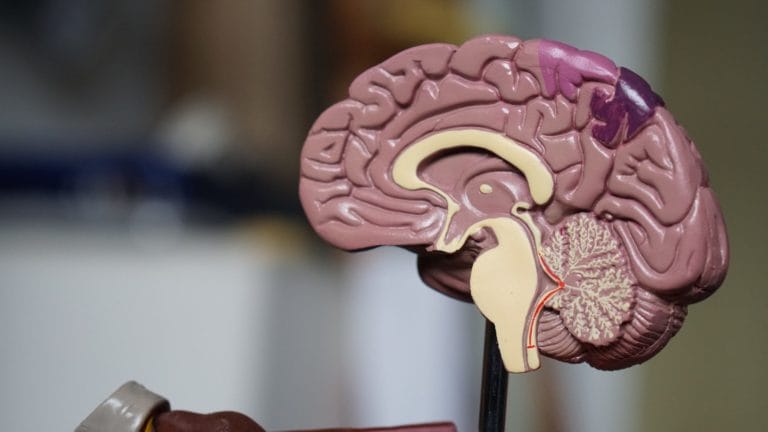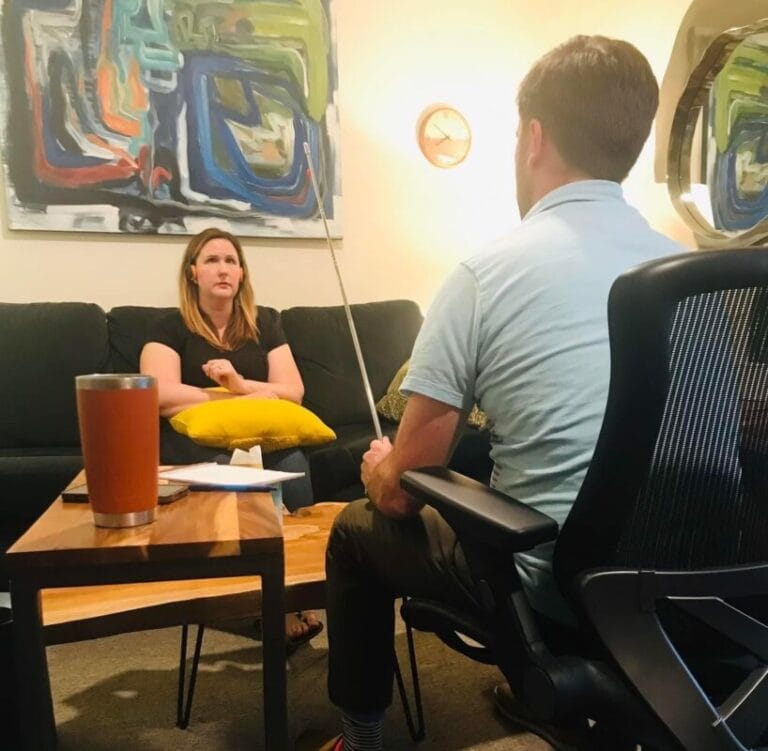Many years ago, I was wearing my infant son in the grocery store when a woman approached me. She was oohing and ahhing over my baby, then told me to “enjoy it while it lasts. Because when they turn twelve, it all goes to hell.” She then walked away looking defeated.
The Tricky Nature of Parenting Teens
Parenting tweens and teens can be tricky. Often, parents fall into two camps.
The first camp of parents are those who see the teen years as a time to get more involved, employ more protections, parameters, and structure. Their motivation is typically to keep their teen from getting into trouble.
The second camp of parents see the teen years as a time to foster independence by stepping back and letting their son or daughter learn to navigate life on their own. Their motivation is typically to honor their teen’s need for autonomy.
However, we suggest a third method. Maintain the same level of involvement you had with your teens as children while understanding that it will look very different. Instead of being “out front” leading your teen, shift to a “side by side” approach.
All adolescents want to have a purpose in life. This purpose goes beyond performance-based goals like academia and athletics; it’s character-based, affects their sense of self, and is applicable throughout life. As parents, it’s important that we help our teens identify that purpose and vision.

Being a Proactive Parent to a Teen
It is critical to find ways to remain active in your teen’s life. Create an environment where you know their friends, and your teen’s life is still connected to your family. Even though they’re growing up, teens still have a deep-seated need for family support, encouragement, conversation, and relationships.
Your kids will face a lot of hard decisions and situations during their teenage years–bullying, porn, alcohol, sex, eating disorders, suicidal ideations, drugs, vaping, etc. As a parent, it’s important to take a proactive approach to discussing these hard topics with your teen. Your kids will be much more receptive to your input if you can speak to them before the hard times come.
If your teen does get caught up in a troubling situation or behavior, it’s important not to react too strongly. Teens crave connection above all else; that connection will instantly be lost if you lose your mind on them. Instead, look for the need beneath the behavior. For example, if your teen is being promiscuous, their need for intimacy and connection isn’t the problem–those needs are natural and God-given. And if your teen gets angry when they feel things are unfair, their need for justice isn’t the problem.The problem is in the way your teen is getting their needs met. (This also applies to adults, but that’s for another blog.)
One of the hardest parts of parenting teens is cultivating a safe space for the messiness of their inner and outer worlds. We meet with many teens who don’t open up to their parents because, “I’m just going to be lectured.” To avoid this, it’s important to walk with them through the process instead of simply giving them the answers.

When to Seek Out a Counselor for Your Teen
We all feel normal human emotions like anger, frustration, happiness, and sadness. And teenagers’ emotions can be particularly tempestuous and unpredictable; a host of factors like hormonal changes, lack of sleep and balanced nutrition, academic and social pressures, and excessive screen time can all contribute to this.
However, when a teen is depressed, it feels like a cloud settles over every area of their lives. Their general demeanor becomes overcast. Everything has a heaviness and a downward motion to it. Depression settles in and remains for several days or weeks. Anxiety has a similar longevity.
In these scenarios, it is important to have your teen meet with a counselor because emotional and physical changes taking place during adolescence will greatly intensify the anxiety or depression.
In addition, teens’ thinking brains are still developing, causing their level of impulsivity to be very high. This makes teens much more vulnerable to negative coping behaviors when struggling with depression or anxiety. This is why many teens are drawn to excessive social media use, pornography, self-medication, or eating disorders.
An experienced counselor will help your teen process their emotions and experiences and learn positive ways to regulate. If you’re local to Arkansas, we recommend Joseph Bailey. As a former pastor, former teacher, and current counselor and father of six, Joseph specializes in both secular and Christian counseling for teens and their families.
The Unanswered Questions
You may be thinking, “Ok, but HOW? What EXACTLY should I do or say?” “And what if my teen still won’t open up to me despite my best efforts?” “What if my teen refuses to go to counseling?” “What if my teen remains distant or defiant even after I try to connect with them?”
We only have so much space here, so stay tuned for our next blog. The best advice we can give in the meantime is to seek out a counselor yourself. As you become vulnerable, your teen will, too.
The Finding Place Counseling and Recovery is located in Little Rock, Arkansas. Our therapists offer both secular and Christian counseling for teens and their families. Contact us to schedule a session or book an intensive.






